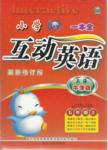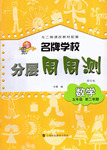题目内容
第一部分 完形填空(共两节, 20小题; 每小题2分,满分40分)
完形填空(1) 阅读下面短文,掌握其大意,然后从1~10各题所给的A、B、C和D项中,选出最佳选项,并在答题卷上将该项涂黑。
Wise buying is a positive way in which you can make your money go further. The way you go about purchasing an article or a service can actually __1______ your money or can add __2______ the cost.
Take the __3______ example of a hairdryer. If you are buying a hairdryer, you might think that you are making the __4______ buy if you choose one whose look you like and which is also the cheapest __5______ price. But when you get it home you may find that it _6______ twice as long as a more expensive model to dry your hair. The cost of the electricity plus the cost of your time could well __7______ your hairdryer the most expensive one of all.
So what principles should you adopt when you go out shopping? If you __8______ your home, your car or any valuable __9______ in excellent condition, you’ll be saving money in the long run.
Before you buy a new appliance, talk to someone who owns one. If you can, use it or borrow it to check whether it suits your particular __10______. Before you buy an expensive item or a service, do check the price and what is on offer. If possible, choose from three items or three estimates.
1 A save B preserve C raise D retain
2 A up B to C in D on
3 A easy B single C simple D similar
4 A most B fullest C best D cheapest
5 A for B with C in D on
6 A spends B takes C lasts D consumes
7 A cause B make C leave D prove
8 A reserve B decorate C store D keep
9 A products B possession C material D ownership
10 A function B purpose C goal D task
ABCCC BBDBB

 互动英语系列答案
互动英语系列答案 名牌学校分层周周测系列答案
名牌学校分层周周测系列答案